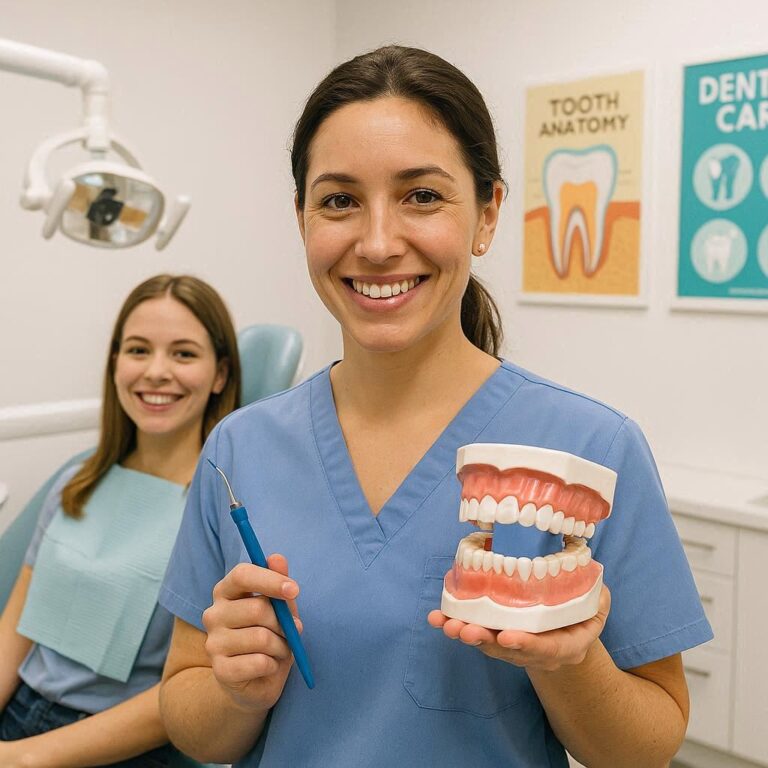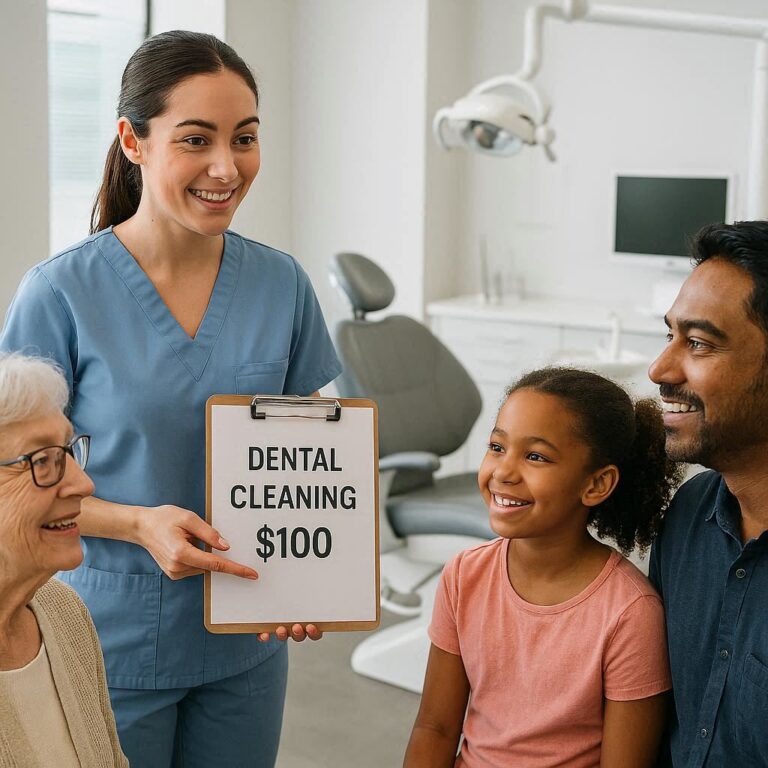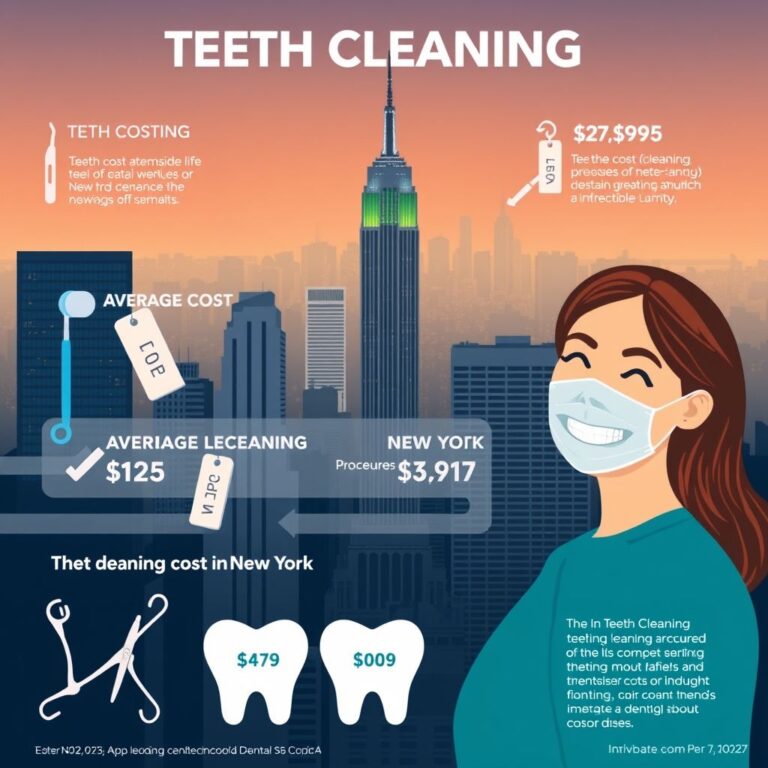Average Cost of Teeth Cleaning: An In-Depth Analysis
Maintaining good oral hygiene is essential for overall health, and teeth cleaning is a fundamental part of this process. Professional teeth cleaning not only ensures the removal of plaque and tartar but also helps prevent gum disease and other dental issues. However, the cost of teeth cleaning can vary significantly depending on various factors. This article provides a comprehensive analysis of the average cost of teeth cleaning, factors influencing these costs, and ways to make dental care more affordable.

Understanding Teeth Cleaning
Teeth cleaning, also known as prophylaxis, involves the removal of dental plaque and tartar to prevent cavities, gingivitis, and periodontal disease. The process is typically performed by a dental hygienist and includes scaling, polishing, and fluoride treatment.
Factors Affecting the Cost of Teeth Cleaning
The cost of teeth cleaning can vary based on several factors:
- Geographical Location: Dental care costs can differ significantly from one region to another. Urban areas tend to have higher prices compared to rural areas.
- Type of Dental Practice: Private practices might charge more than clinics or dental schools.
- Dental Insurance: Coverage can significantly reduce out-of-pocket expenses.
- Condition of Teeth and Gums: More extensive cleaning procedures may be required for patients with significant tartar buildup or gum disease.
- Additional Treatments: Fluoride treatments, X-rays, and other diagnostic procedures can add to the overall cost.
Average Cost Breakdown
Here is a general overview of the average costs associated with teeth cleaning:
| Procedure | Average Cost |
|---|---|
| Basic Cleaning (Prophylaxis) | $75 – $200 |
| Deep Cleaning (Scaling and Root Planing) | $150 – $300 per quadrant |
| Periodontal Maintenance | $100 – $400 |
| Fluoride Treatment | $20 – $50 |
| Dental X-rays | $25 – $150 |
Geographical Variations in Cost
The cost of dental cleaning can vary widely based on the location of the dental practice. For instance, a basic cleaning might cost:
- Northeast: $100 – $200
- Midwest: $80 – $170
- South: $75 – $160
- West: $90 – $185
Insurance and Dental Plans
Having dental insurance can significantly reduce the cost of teeth cleaning. Many insurance plans cover 100% of the cost of routine cleanings. For those without insurance, dental discount plans can offer savings of 10-60% on dental procedures.
Additional Treatments and Costs
Sometimes, additional treatments are required alongside teeth cleaning:
- Fluoride Treatments: Typically cost between $20 and $50 and are often covered by insurance for children.
- Sealants: These are applied to children’s teeth to prevent cavities and can cost between $30 and $60 per tooth.
- X-rays: Routine dental X-rays can add an additional $25 to $150 to the overall cost.
Affordable Dental Care Options
For those concerned about the cost of teeth cleaning, several options can help make dental care more affordable:
- Dental Schools: Many dental schools offer discounted services performed by students under the supervision of licensed dentists.
- Community Clinics: Some clinics offer services on a sliding scale based on income.
- Dental Discount Plans: These plans provide discounts on various dental services for an annual fee.
- Flexible Spending Accounts (FSAs) or Health Savings Accounts (HSAs): These accounts allow you to set aside pre-tax dollars for medical and dental expenses.
The Importance of Regular Teeth Cleaning
Regular teeth cleaning is crucial for maintaining oral health. It helps prevent the buildup of plaque and tartar, reduces the risk of cavities, and helps detect early signs of dental problems. Moreover, maintaining good oral hygiene can prevent more serious and costly dental issues in the future.
The Process of Teeth Cleaning
- Examination: The dentist or hygienist will examine your mouth using a small mirror to check for signs of gingivitis or other potential concerns.
- Scaling: Special tools are used to remove plaque and tartar from the surfaces of your teeth and along the gumline.
- Polishing: After scaling, the teeth are polished using a gritty paste to remove surface stains and make the teeth smooth.
- Fluoride Treatment: A fluoride gel or foam may be applied to help protect your teeth against cavities.
Risks and Considerations
While teeth cleaning is a safe and routine procedure, some patients might experience temporary sensitivity or discomfort. It’s important to communicate with your dentist about any concerns or pre-existing conditions that might affect the procedure.
Future Trends in Dental Cleaning
The field of dentistry is constantly evolving, with new technologies and techniques emerging to improve patient care. Some future trends include:
- Laser Dentistry: Using lasers to remove plaque and tartar with greater precision and less discomfort.
- Teledentistry: Remote consultations and follow-ups can make dental care more accessible.
- Enhanced Preventive Care: Advanced diagnostic tools for early detection of dental issues.
Conclusion
Regular teeth cleaning is an essential aspect of maintaining oral health. While the cost can vary based on several factors, there are numerous options available to make dental care more affordable. By understanding these factors and exploring different options, you can ensure that you receive the necessary care without breaking the bank.
FAQs
- How often should I get my teeth cleaned?
- Most dentists recommend getting your teeth cleaned every six months.
- Can teeth cleaning remove stains?
- Yes, professional teeth cleaning can remove surface stains caused by food and drinks.
- Is teeth cleaning covered by insurance?
- Most dental insurance plans cover the cost of routine teeth cleaning.
- What is the difference between a regular cleaning and a deep cleaning?
- A regular cleaning is a preventive measure, while a deep cleaning involves removing plaque and tartar from below the gumline and is used to treat gum disease.
- Can teeth cleaning damage my teeth?
- When performed by a professional, teeth cleaning is safe and does not damage your teeth.
Additional Resources
- American Dental Association (ADA): www.ada.org
- Centers for Disease Control and Prevention (CDC): www.cdc.gov
- Mayo Clinic – Dental Cleaning: www.mayoclinic.org


